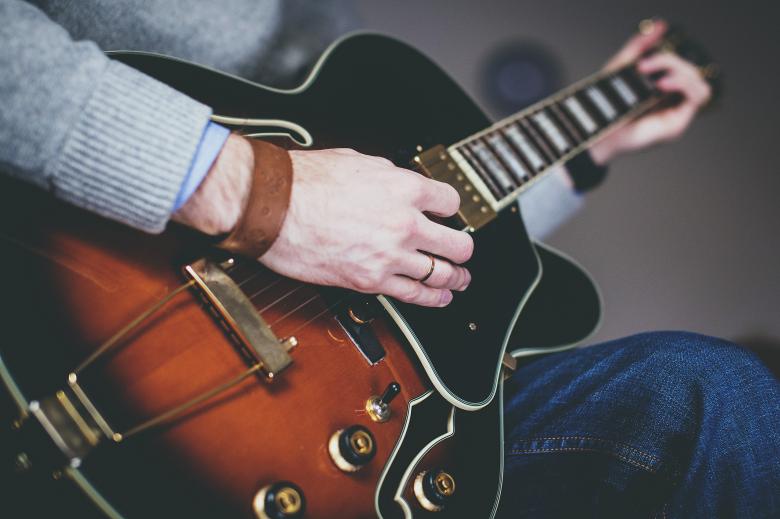If you’ve noticed that many guitarists wear wristbands and wondered, “why do guitarists wear wristbands?”, you’re not alone. This article aims to shed light on the various reasons guitarists have for wearing wristbands, from practical purposes to style statements.

To Absorb Sweat
One of the primary reasons why guitarists wear wristbands is to absorb sweat. When you’re performing live or practicing for hours, it’s natural to sweat. Wristbands, typically made of absorbent materials like cotton, can soak up the sweat and prevent it from trickling down to your hands and affecting your grip on the guitar.
To Improve Grip
Another functional reason is to improve grip. Some wristbands have rubberized or textured interiors designed to help guitarists maintain a better hold on the guitar neck. If you find that your hand slips often while playing, wearing a wristband can be a useful solution.
Read more guitar topics here – Guitar Questions: Get the Right Answers to Your Burning Questions
For Fashion
Beyond practical purposes, some guitarists wear wristbands as a fashion statement. Wristbands can come in various colors and designs, allowing musicians to express their personal style. However, it’s essential to choose one that won’t interfere with your playing.
For Medical Reasons
Some guitarists wear wristbands for medical reasons. If you have issues like carpal tunnel syndrome or tendinitis, a compression wristband can provide relief by reducing swelling and improving blood flow to the area.
To Promote a Brand or Cause
Lastly, wristbands can serve as a platform for promoting a brand, band, or cause. Many musicians use custom wristbands as a form of merchandising or to raise awareness about a social issue close to their hearts.
Why Do Guitarists Wear Wristbands?: Conclusion
So, why do guitarists wear wristbands? As you can see, the reasons vary from practical utility to personal expression. Whether you’re a guitarist yourself or just curious, understanding these motives can provide deeper insights into the world of music and performance.
